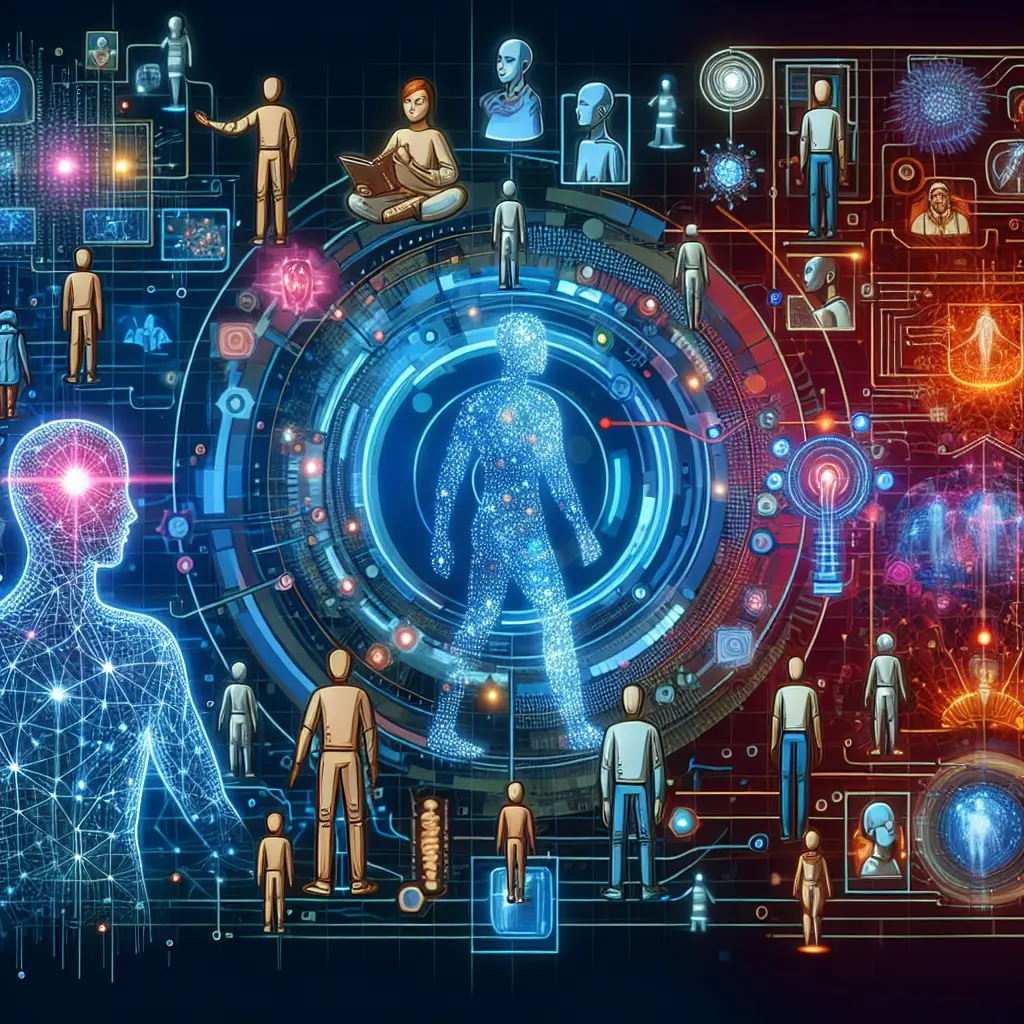
In a world where technology continually reshapes our interactions and identities, the advent of human avatars stands as a pivotal development. These digital representations, while offering groundbreaking opportunities, also bring forth profound ethical and technological implications. As we delve into the nuances of avatar technology, recent developments in entertainment and tech industries provide a rich context for understanding this evolution.
One of the most striking examples of the cultural impact of avatars is seen in the cinematic world, with the release of "Avatar 3: Fire and Ash." This film not only captivates audiences with its stunning visual effects but also subtly underscores the complex relationship humans have with their digital counterparts. The depiction of human-avatar interaction in the film raises questions about identity and embodiment in virtual environments (James Cameron’s Avatar, 2023).
Simultaneously, the tech industry is making significant strides in avatar technology. Meta’s redesigned Quest app, with its enhanced focus on Horizon Worlds, exemplifies the shift towards more immersive virtual experiences. This platform allows users to create and interact within expansive digital landscapes, pushing the boundaries of what avatars can achieve in social settings (Meta Platforms, 2023).
This week’s Meta Quest updates have been particularly revealing. The sheer volume of enhancements and new features points to a rapidly evolving landscape where human avatars are becoming increasingly sophisticated. Such developments, however, also spotlight the urgent need for robust ethical frameworks to guide avatar use (Meta Platforms, 2023).
The ethical implications of avatars are further complicated by advancements in AI technology. Chinese companies, for instance, are now offering services to 'resurrect' deceased loved ones through AI-driven avatars. This controversial use of avatar technology raises significant moral and ethical questions about memory, grief, and digital representation of individuals (TechAsia, 2023).
Moreover, the introduction of new patents and technologies, such as Meta’s mimicry of Apple's EyeSight feature, indicates a growing trend in personalization and realism in avatar technology. These developments necessitate a discussion on privacy issues with avatars, as increasingly lifelike digital representations can blur the lines between reality and virtuality (TechCrunch, 2023).
In light of these advancements, it's crucial to consider the societal impact of human avatars. The integration of avatars into everyday life can influence social interactions, personal identity, and even cultural norms. As such, ethical avatar design becomes paramount to ensure that these technologies enhance human experiences without compromising moral values or societal welfare.
Privacy concerns are particularly pronounced with AI avatars. As these digital entities become more capable of mimicking human behaviors and interactions, the potential for misuse or unethical exploitation of personal data increases. This underscores the need for stringent regulations and transparency in how avatar data is collected, used, and stored (Privacy International, 2023).
The moral implications of digital avatars are also evident in how they can reshape concepts of consent and agency within digital realms. Avatar personalization technology allows users to tailor their digital selves extensively, but it also poses risks related to identity theft and misrepresentation. Ensuring ethical standards in these areas is crucial to maintaining trust and integrity within virtual platforms (Ethics in Technology Association, 2023).
From an industry perspective, companies like Microsoft are also recognizing the potential of avatars in professional settings. The release of iOS and Android apps for Designer, their AI-powered design tool, integrates avatars as part of a broader suite of virtual collaboration tools. This application highlights the technological implications of avatars in enhancing communication and creativity across digital spaces (Microsoft News Center, 2023).
The use of avatars isn't limited to human-like figures in virtual worlds or professional tools; they also play roles in entertainment settings outside traditional tech platforms. Disney’s new Lion King ride in Paris park incorporates avatar technology to create interactive experiences that blend physical and digital elements, illustrating the versatile applications of avatars (Disney Parks Blog, 2023).
As we observe these myriad uses and continuous innovations in avatar technology, it becomes apparent that ethical considerations must be at the forefront of development and deployment. Virtual identity ethics are not merely academic concerns but real issues that affect individuals and communities interacting with these technologies daily.
In conclusion, as we navigate this exciting era of digital transformation, the integration of human avatars into various aspects of life demands careful consideration of both technological potentials and ethical boundaries. From enhancing cinematic experiences to reshaping social interactions in virtual platforms, avatars hold significant promise but also pose substantial challenges.
As developers, users, and thinkers in this evolving landscape, it is our responsibility to ensure that as we advance technologically, we also progress ethically. Balancing innovation with integrity will be key to harnessing the full potential of avatar technology while safeguarding individual rights and societal values.
By Alicia Fieldstone